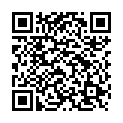|
|
|
| Module code: BITM-115 |
|
|
4V (4 hours per week) |
|
5 |
| Semester: 1 |
| Mandatory course: yes |
Language of instruction:
German |
Assessment:
Written exam (90 minutes / can be repeated semesterly)
[updated 17.09.2018]
|
DFBTO305 (P620-0519) International Tourism Management, Bachelor, ASPO 01.10.2018
, semester 3, mandatory course
DFITM-307 (P620-0464) International Tourism Management, Bachelor, ASPO 01.10.2020
, semester 3, mandatory course
BITM-310 (P440-0076) International Tourism-Management, Bachelor, ASPO 01.10.2013
, semester 3, mandatory course
BITM-310 (P440-0076) International Tourism-Management, Bachelor, ASPO 01.10.2015
, semester 3, mandatory course
BITM-115 (P440-0076) International Tourism-Management, Bachelor, ASPO 01.10.2017
, semester 1, mandatory course
BITM-115 (P440-0076) International Tourism-Management, Bachelor, ASPO 01.10.2020
, semester 1, mandatory course
|
60 class hours (= 45 clock hours) over a 15-week period.
The total student study time is 150 hours (equivalent to 5 ECTS credits).
There are therefore 105 hours available for class preparation and follow-up work and exam preparation.
|
Recommended prerequisites (modules):
None.
|
Recommended as prerequisite for:
|
Module coordinator:
Prof. Dr. Michael Zell |
Lecturer:
Dozierende des Studiengangs
[updated 10.10.2017]
|
Learning outcomes:
After successfully completing this module, students will:
- be able to name the basic terms of cost accounting and be familair with the work involved in internal accounting.
- have a basic understanding of the structure of and tasks associated with cost elements, cost centers and cost object accounting.
- be familiar with the basic concepts and instruments of the above mentioned subareas.
- be able to apply the concepts and instruments learned in the various sub-areas to simple company examples from the tourism sector.
- be able to solve internal accounting issues in tourism companies using the concepts and instruments learned.
[updated 17.09.2018]
|
Module content:
Cost accounting
- Basic terms and principles of cost accounting
- Cost element accounting (systematization and description of cost elements)
- Cost center accounting (cost allocation sheets and internal activity allocation)
- Cost object accounting (calculation and profit and loss accounting)
- Special features of cost accounting in tourism businesses.
[updated 17.09.2018]
|
Teaching methods/Media:
Lecture, exercises and case studies
[updated 17.09.2018]
|
Recommended or required reading:
Benz, C.: Touristikkostenrechnung, Gabler Verlag, latest edition.
Däumler, K.-D., Grabe, J.: Kostenrechnung 1, 8. Aufl., nbw Verlag, Herne/Berlin, latest edition.
Eisele, W.: Technik des betrieblichen Rechnungswesens, Wiesbaden, latest edition.
Posluschny, P., Kostenrechnung für die Gastronomie, 3. Aufl., München, 2010.
Zell, M., Kosten- Performancemanagement: Grundlagen _ Instrumente _ Fallstudie, Gabler-Verlag, 2008.
[updated 17.09.2018]
|


